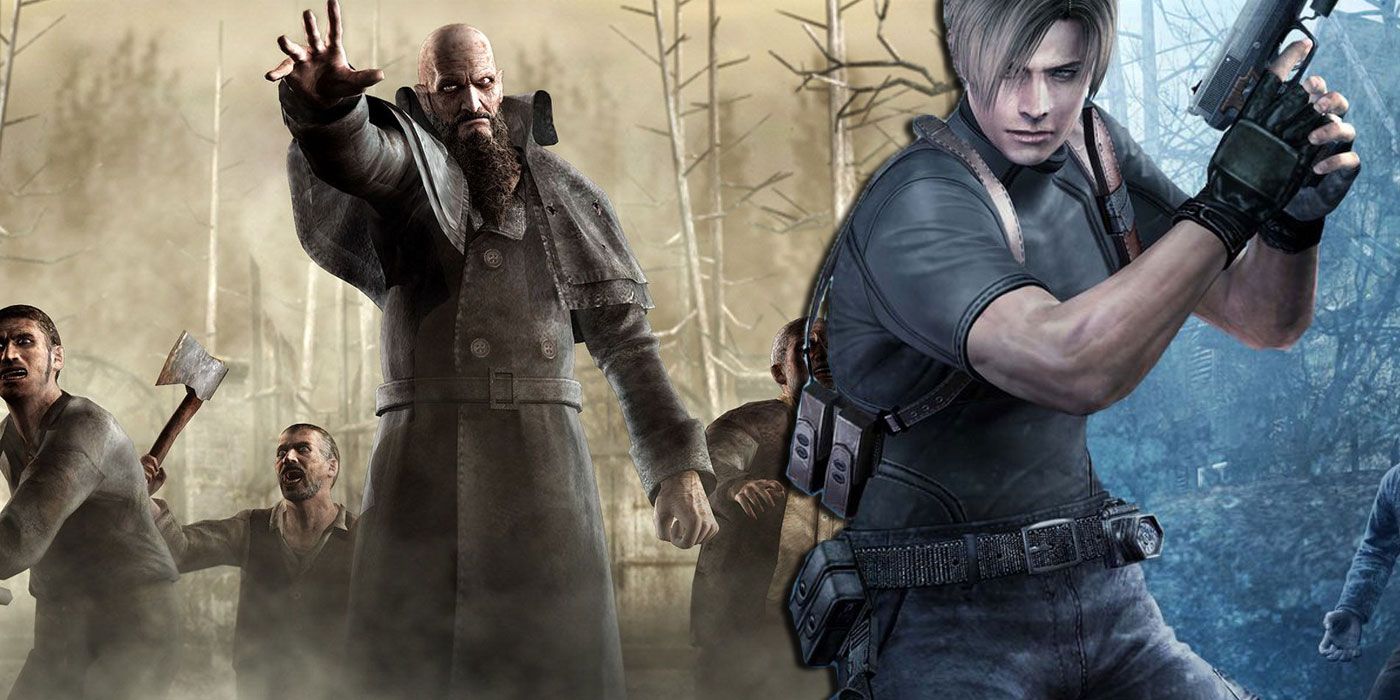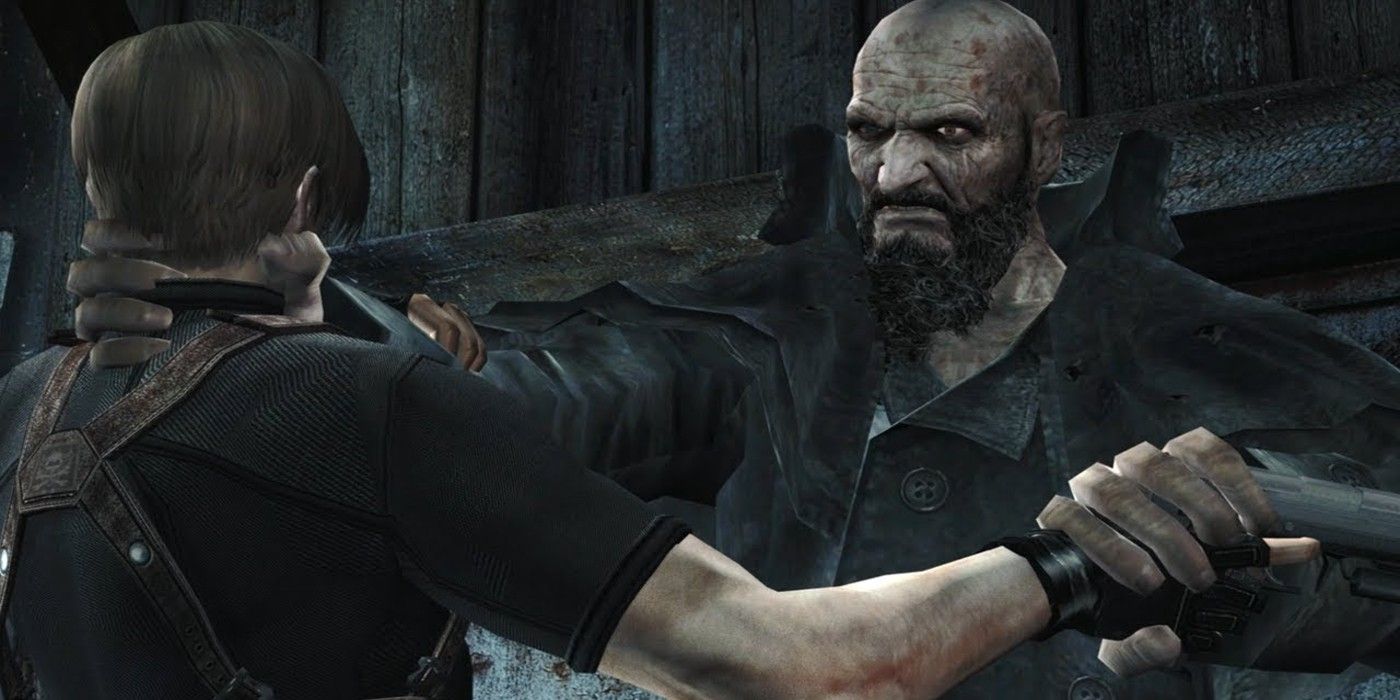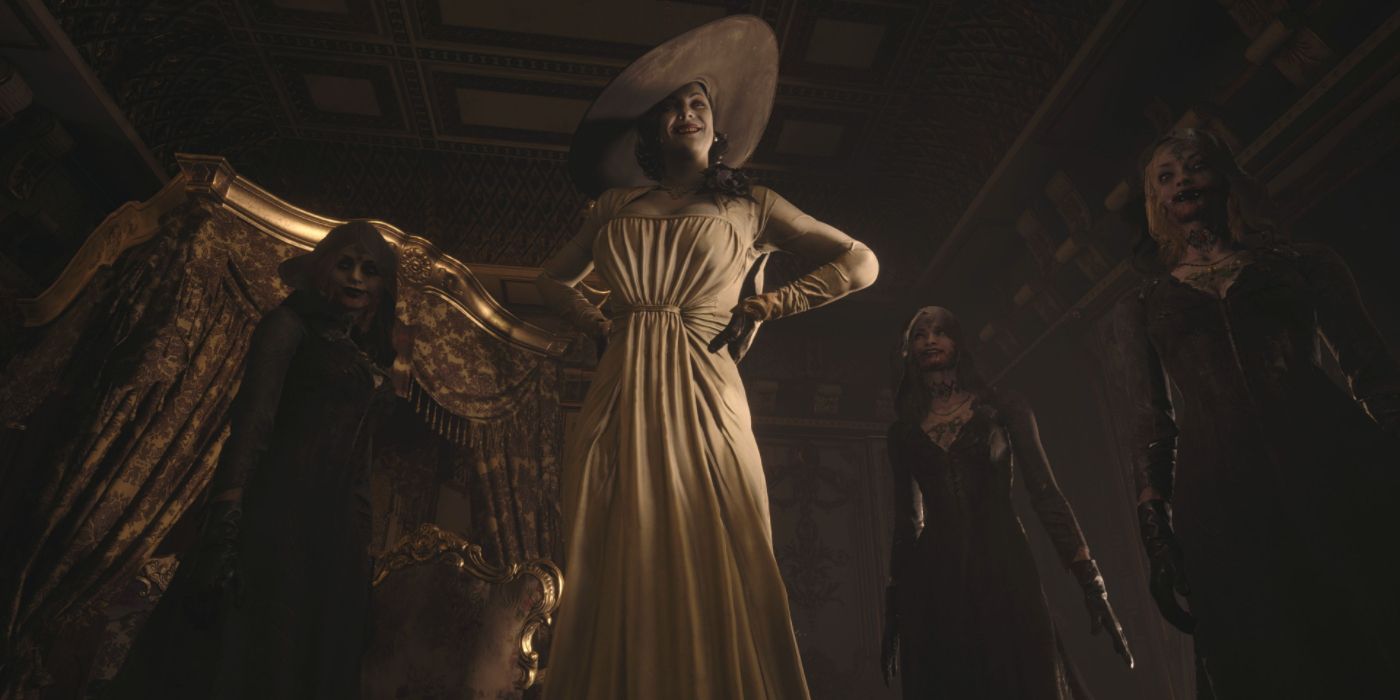
When Resident Evil 4 was originally released for the Gamecube back in 2005, it changed third-person shooters forever. The tight, over-the-shoulder camera became the standard instead of an outlier, paving the way for games like Dead Space and The Last of Us. Beyond changing the very landscape of game design with its release, Resident Evil 4 was incredibly well put together.
From the game's onset, Resident Evil 4 ratchets the tension through the roof and never gives Leon S. Kennedy, the joyously cheesy returning protagonist from Resident Evil 2, more than a few moments to breathe. By the time Leon reaches the first village, things begin to spiral immediately. The entire population of the unnamed village turns on Leon and forces him into a desperate scramble for survival. This is just the first of many of these kinds of sequences in Resident Evil 4 and the addition of quick-time events, while divisive, made it so even cutscenes weren't safe. Everything worked, even often maligned gameplay elements like escort missions. Resident Evil 4 was a perfect storm, a "once in a generation" kind of game.

After climbing to such heights, it was almost inevitable that the Resident Evil series come crashing back down, but at least it never hit rock bottom like Devil May Cry. Both Resident Evil 5 and Resident Evil 6 were fine games; if they'd been released under different names, they might have lead to a successful, more action-based IP. But as Resident Evil games, they were failures. The horror that had defined the series was gone. Resident Evil 7 directly responded to the criticisms that the series had lost what made it special. The shift to first-person made each threat that much more immediate while also directly controlling the available field of vision. The new protagonist, Ethan Winters, was more down to earth -- at least on the surface. This removed the invincible feeling that came from playing as the action movie stars that previous characters had become.
The remakes of Resident Evil 2 and 3 continued this trend while eschewing the first-person perspective to return to the over-the-shoulder view. Both returns to Raccoon City invoked the same spirit of their original versions while tightening up the control scheme that Resident Evil 4 started to develop. Resources were limited again, and there were no turret sections. The series seemingly returned to what had originally set it apart, forsaking the potential that Resident Evil 4 had developed. However, all that changed with the release of Resident Evil Village.

It was the first game released since Resident Evil 4 that hearkened the most back to that pioneer. Returning to the first-person perspective that Resident Evil 7 experimented with, Resident Evil Village presented an Ethan Winters that had grown considerably after his traumatic exploration of the swamps of Louisiana. He was far more prepared for the horrors his world has to offer, which is reflected in the gameplay. This made Village's shift to a focus on combat make sense from a narrative perspective. Every gun feels satisfying to shoot, but enemies won't just melt before Ethan's onslaught. The various monstrosities that will clog Ethan's path will not die easily. Ghouls and werewolves will stand back up with most of their faces gone, nothing a few more bullets won't solve, but each shot needs to count. While resources are more plentiful than in Resident Evil 7, they're nowhere near abundant, and this shift towards combat isn't the only way Village seeks to learn from the legends that proceed it.
The similarities to Resident Evil 4 will greet returning fans in the opening encounter of Resident Evil Village. The 8th entry in the series invokes the same kind of raw panic as the first time Leon has to survive his own village. Obviously, Resident Evil Village sets itself apart in the claustrophobia allowed by a first-person perspective and further developing the stalking threats refined in the RE2 & 3 remakes. The line between fear and power is expertly navigated. Resident Evil Village manages to rival Resident Evil 4 in both the overall quality of its campaign and in hitting specific high points to perfection.
It may still be too soon to decide if Resident Evil Village managed to surpass Resident Evil 4 in the series hierarchy, with the earlier game's obvious evergreen appeal. Still, if there has ever been a contender for the crown, it's the most recent game in the series. If Capcom can continue to walk that fine line and balance the action with well-placed scares and genuine tension, it could have another "once in a generation" game on its hands one day.
0 Comments